Lying in a relationship feels like dropping a stone into calm water. The moment passes quickly, but the ripples continue to spread touching trust, comfort, communication, and connection.
Yet despite how heavy this moment feels, a lie does not always mean the end of a relationship. Many couples repair the damage, rebuild trust, and come out stronger and more emotionally mature.
This guide walks you through practical, human, and emotionally honest steps to gain trust back in a relationship after lying, using simple language and real, relatable examples.
Why Trust Relationship After Lying Breaks So Easily
Trust is fragile because it is built on belief belief that your partner is honest, loyal, and emotionally safe.
When a lie happens, that belief cracks. Even a small lie can make someone question everything else.
Trust relationship after lying breaks because:
• The betrayed partner feels confused
• Doubts begin to replace certainty
• Emotional safety drops suddenly
• Communication becomes tense
• Every small action starts to feel suspicious
One lie does not destroy love but it does damage the foundation that holds it. Understanding this is the first step to rebuilding.
Understanding Emotional Impact in Trust Relationship After Lying
Before you try to fix trust, you must understand how your lie affected your partner emotionally. Their reaction may feel bigger than the lie itself but that reaction comes from fear, disappointment, or insecurity.
Common emotional reactions include:
• Feeling hurt or disrespected
• Loss of confidence in the relationship
• Fear that more lies exist
• Overthinking and emotional stress
• Pulling away to protect themselves
Understanding these emotions helps you respond with empathy instead of defensiveness.
How Honesty Starts Healing Trust Relationship After Lying
You cannot regain trust with silence or excuses. Healing begins with full honesty.
Here is what honesty looks like:
• Taking responsibility without shifting blame
• Admitting the full truth, not half of it
• Answering questions calmly
• Being transparent instead of hiding details
• Showing that you understand why your partner is hurt
Example of unhealthy honesty:
“I told one lie, but it wasn’t a big deal.”
Healthy honesty:
“I understand that my lie hurt you. I’m ready to fix it and be transparent moving forward.”
Honesty turns the situation from damage to repair.

Apologizing the Right Way for Trust Relationship After Lying
A simple “sorry” is not enough. A real apology is emotional, detailed, and sincere.
A meaningful apology should include:
• Acknowledgment of what you did
• Understanding of why it hurt
• Responsibility without excuses
• Reassurance that you will not repeat it
• Space for your partner to express feelings
A good apology shows that you see their pain, not just your mistake.
Giving Space to Heal in Trust Relationship After Lying
After a lie, many people expect immediate forgiveness. But emotional wounds take time.
Giving space is necessary because:
• Your partner needs to process feelings
• Healing cannot be rushed
• Immediate pressure makes the situation worse
• Space helps rebuild emotional clarity
This space does not mean distance; it means patience. Stay present, supportive, and available without overwhelming them.
Consistency Is Key in Trust Relationship After Lying
Trust is not rebuilt by one big action. It is rebuilt by many small, consistent actions over time.
Ways to show consistency:
• Keep your promises
• Be on time
• Share updates openly
• Follow through on commitments
• Avoid repeating past patterns
• Communicate clearly and respectfully
Consistency proves sincerity and reduces doubt, slowly stitching trust back together.
Transparency Builds Stronger Trust Relationship After Lying
When trust is damaged, transparency becomes necessary.
Examples of transparency:
• Sharing plans before being asked
• Explaining situations clearly
• Being open about your feelings
• Keeping communication frequent
• Allowing clarity instead of secrecy
Transparency is not about control it is about rebuilding safety.
Listening Emotionally in Trust Relationship After Lying
Your partner may express the same feelings repeatedly. They may bring up the lie more than once. This is normal.
To rebuild trust, you must:
• Listen without interrupting
• Validate their emotions
• Be patient with their questions
• Avoid saying “We already talked about this”
• Respond with care, not frustration
Emotional listening shows that you value their healing more than your comfort.

Rebuilding Intimacy in Trust Relationship After Lying
Emotional closeness may drop after a lie, but it can return with effort.
Ways to rebuild intimacy:
• Spend quality time together
• Have honest conversations
• Show appreciation daily
• Share small affectionate gestures
• Create positive memories again
Intimacy grows when trust rebuilds slowly but beautifully.
How to Prevent Future Damage in Trust Relationship After Lying
Preventing the same mistake is essential for long-term healing.
Here’s how to avoid repeating the pattern:
• Understand why you lied in the first place
• Fix the emotional or situational trigger
• Improve communication habits
• Practice honesty even in uncomfortable moments
• Build better emotional awareness
The best apology is changed behavior.
Strengthening Trust Relationship After Lying and Growing Together
Many couples become stronger after overcoming a lie. Once trust is rebuilt, the relationship often becomes more open, honest, and emotionally secure.
Growth happens when both partners:
• Communicate without fear
• Support each other equally
• Understand triggers and needs
• Create healthier emotional boundaries
• Commit to honest connection
The relationship that survives a lie is often wiser and more mature than before.
Trusted and True is the first dating platform truly dedicated to helping you rebuild honesty, trust, and genuine connection after a relationship setback. Learn how to repair the damage, communicate openly, and restore what truly matters.
FAQs
How long does it take to gain trust back after lying?
Healing time depends on the depth of the lie, the emotional impact, and the effort both partners put in. It may take weeks or months, but consistency helps.
Can a relationship fully recover after lying?
Yes. Many relationships recover and become stronger when honesty, communication, and effort are applied consistently.
What should I avoid when trying to rebuild trust?
Avoid rushing forgiveness, denying the lie, blaming your partner, hiding details, repeating the same behavior, or becoming defensive.









